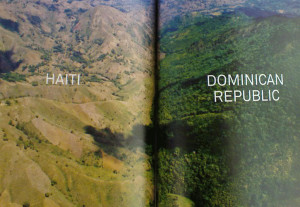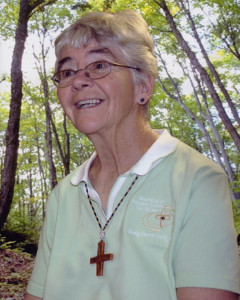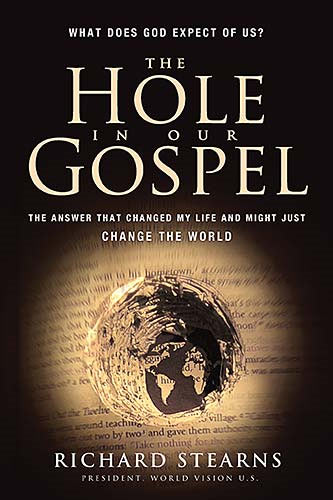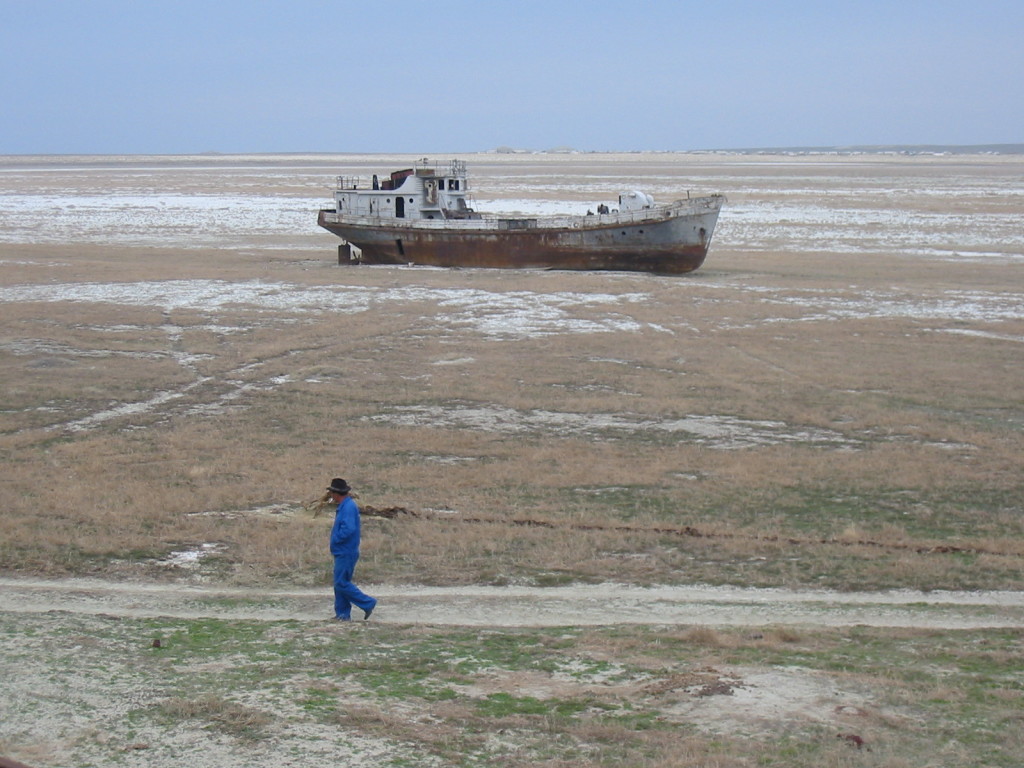In the last post, I wrote that we need the equivalent of World Vision, the $2.67 billion Christian humanitarian and community development organization, to bring tremendous resources to bear on the effort to preserve and mend God’s earth. I promised to lay out some ideas of the work that new organization might do and how it would be funded.
I didn’t expect to be writing this and the last post. I actually have a spreadsheet chockfull of blog post ideas that I’ve been working through and adding to. This post and the last are not on that spreadsheet.
I had envisioned this blog being a place for me to share ideas, stories, and insights about the whole faith that includes Creation. I hoped it would inspire other Christians to hold onto a whole faith and act on it. Perhaps, I thought, it might let Christians who already care about God’s earth know that they are not alone. I desired, too, that it might show people outside of the Christian faith and who care about this living planet that a whole Christian faith shares their conviction that the world has reason and value for existence beyond serving humanity.
I still believe there is value in all of that and, God willing, I hope this blog will be of value in those ways.
But the more I read and learn, the more I’m convinced that my conception of the blog was too redolent of an ivory tower mentality – safe and theoretical but not incarnational. Getting the small (tiny? infinitesimally small?) number of folks who might read this to take small actions in their individual lives for God’s earth as part of a complete Christian life will hardly move the needle.
A friend of mine once made an offhand comment that has stuck with me. It was something like: “I wish Christians worried more about being effective than being correct about every detail of their doctrine.”
I realize I may well be guilty of that same sin.
Part of my motivation in writing this is that I want to be in the right theologically. I want people to come to realize a whole Christian faith necessarily includes a recognition that God’s Creation is part of God’s redemption plan.
But what does that matter if the truth of that theology is not lived out and does not become the reality we see around us?
Not much at all.
We must bear fruit.
So the test of what I am about to suggest for the activities of this international, large-scale organization is this – will they have a chance of having an impact at the scale of the problems God’s earth faces?
Let’s dive in:
Channel Christian philanthropy to conservation at an unprecedented scale: Giving to religious organizations is the number one category of giving in the U.S. Giving by churches and individuals in a concerted way would be a way in itself for churches and individuals to have powerful impact for the work to restore God’s earth. The organization I propose would need to create a fundraising network and system that would be dynamic, ubiquitous, and compelling. It would use those funds for the activities described below and for selectively funding existing organizations that are already doing key work.
Whole Kingdom projects: Land, water, and community skills are the true source of community wealth. This organization would invest resources and staffing in strategic conservation projects that combine nature conservation with sustainable economies and healthy communities. In some cases, these projects would be started fresh. In some cases, where something similar is already being done, we would invest and support the existing project so it could be done even better. Gorongosa Park in Mozambique is not necessarily a full example but it reveals what a difference investment can make in bringing stability for nature and for local communities. What if, for example, investment was made in working with local communities in Haiti to restore a large forest and to have around that forest core sustainable agriculture and community development that relies on sustainable energy so that people no longer needed to cut down trees for firewood? This would benefit people and Creation. I come from a long line of worst-case scenario worriers so trust me I realize that these kinds of ideas have many variable and many ways to fail and may even be naïve. But ultimately we need to create new economies and new ways to live with the land as communities. Let’s start with where people and God’s earth are suffering the most.

In 1923, over 60% of Haiti was forested. In 2006, less than 2% was. This is a calamity for people and wildlife in Haiti. There is an opportunity to integrate community development and ecological restoration there.
Leadership Project: This project will inspire, educate, and train Christian leaders in business, government, and communities to be whole faith leaders. Leaders have a singular and tremendous impact on our world. The potential return in investing in leaders’ hearts and minds might be greater than any other investment. Imagine if Christian leaders throughout the world led their organizations and communities in ways that reflected a whole faith, that valued God’s earth for being God’s, for being vital for the lives and health of our neighbors and especially for the poor? As much as possible, this project would be led by other Christian leaders and would create peer groups among Christian leaders who would support each other and hold each other accountable.
New stories and art: There is a tendency to pursue left-brained solutions to problems in our world, but the right-side of our culture’s brain must also be engaged. In other words, the sickness of our world is not just a question of wrong policies and systems. It is also about the state of our hearts. And what reaches the heart, in addition to God’s Spirit, is art. We need movies, books, graphic novels, television shows, plays, and music that integrate Creation and that celebrate people and communities who seek to mend Creation out of their faith in God. We also need art that challenges and that has a prophetic voice.
Shape Policy and Political Discourse: If you can shape the terrain of ideas and values that frame the terms of a debate, you are more than halfway to shaping what happens in the world. Think tanks like The Heritage Foundation have done just that but have done so, despite their “conservative” labels, with an emphasis on values and thinking that subtly tempt our hearts away from living out values originating in Jesus Christ. We need a think tank that, to build off of the Heritage Foundation’s mission statement, formulates and promotes public policies based on the Christian principles of compassion, justice, creativity, love for our neighbors and for ourselves, and caring for God’s earth. We must think through how those principles can be applied in a fallen world. We must battle, with truth and love, ideas that come cloaked in respectability and sometimes even in Christian rhetoric that are actually antithetical to the incarnational, loving God we find in the Bible.
New church network: As I wrote in the last post, investing efforts in persuading more churches to have and live out a whole faith is not, in my opinion, the most effective way to actually preserve and mend God’s earth at this crisis point. It should be done, of course. I want to help that happen. But there is too much inertia in the current structure of many churches that works against a whole faith in the short term. What if we formed a new type of church or a new type of missional order or a hybrid of both? What if this new form of Christian community integrated God’s earth into the life of the community and the way it worshipped? What if these new churches owned significant amounts of land and demonstrated in each of their particular locations good ways of producing food and creating habitat? What if these new churches also served their communities while also contributing resources to the larger organization? Christian youth could serve and learn at these places during summer vacations and as part of internships, thus incubating new Christian leaders. Christian business people could help make these places well-managed and effective. These would also be communities where people who have sacrificially decided not to have children of their own for the sake of God’s earth could be supported when they adopted and could be linked to other families in covenant relationships if they didn’t.
Prophet protection: When it comes to the borderlands where earth-consuming forces seek to extract every bit of wealth the can from the land and water, the community leaders who speak up against those forces are extremely vulnerable. This is where laws are rarely enforced, where prophets are easy to kill. Perhaps you heard of some of them when they were alive? Dorothy Stang, Edwin Chota, and Chico Mendes are examples. It’s more likely that you heard of them after thy were murdered. Christians should stand in solidarity with those vulnerable prophets. People, resources, economic support, social media attention, leaderships networks should be brought to bear by Christians to protect them. These prophets speak for the most vulnerable communities, the most vulnerable places. These prophets are nerve signals to their communities and to the world as a whole that precious peoples and places are in danger of being lost. We must respond.

Dorothy Stang was a Christian who spoke up for the poor and the forests of Brazil, angering loggers and ranchers. She was shot to death 10 years ago.
A theological think tank & seminary: Within the Church, there is a need for a compelling and tenacious voice that presses the Church in theological and prophetic ways to change its theology and its members’ way of life to reflect a whole faith. This would combine theological vigor with dynamic, challenging advocacy. It would even press for new practices of the faith. It would also be a new seminary that trains church and ministry leaders in an incarnational whole faith for the new church/missional order I described earlier.
Prayer & laments: This organization would be a catalyst for unceasing waves for God’s earth and the people who are trying to protect it and the people and creatures that suffer due to its devastation. As Christians, we believe prayer opens us to God’s Spirit and changes our hearts. We also believe that God will respond to prayer, sometimes in miracles and interventions that we can see. It is also time to lament. The destruction of the land and water of a community devastates the spirits of those people. People who care about God’s earth, like many scientists and conservationists, and who have seen its destruction are psychologically devastated. They need places to go and laments to sing that will allow them to express their sorrow and loss. Christians should come alongside those people and share their pains with new rituals and songs and pieces of art. They should mourn with them.
* * * * *
For 14 years, I was involved in fundraising for nonprofit organizations and now I work for a private operating foundation. This has given me a full appreciation for how important funding is to enable organizations to carry out activities and have an impact. With that in mind, I have some thoughts about where funding would come from for the organization.
Christian philanthropy: A fullcourt press would be applied to gathering financial support from Christians, their foundations, and their businesses. The reality, of course, is that many Christians don’t see the preservation and restoration of Creation as important as many other elements of the work of the kingdom. This could be very hard and challenging work. The fundraising would need to be imaginative and compelling in making the case for the importance of this organization’s work.
Non-Christian philanthropy: If this organization is uniquely effective, philanthropists of all sorts will be good prospects for joining in the effort.
Social enterprises: An emerging form of nonprofit funding and nonprofit charitable activityis the social enterprise, a business that advances the nonprofit organization through its actual activities and by generating money. A great example is Goodwill, which helps people with barriers to employment by employing them in their retail operations. The profits made in the stores then help fund other job training and education activities Goodwill carries out. Let’s turn loose the creative entrepreneurial talents of Christians into new social enterprises that are good for God’s earth and generate funding. Examples might include sustainable farming operations (think Newman’s Own but more vertical, from farming to processing), ecotourism, and even art and culture production.
Support of new churches and existing churches: If a new network of churches was developed, these churches would, as part of their establishment, commit to funding the larger organization on an ongoing and significant basis. Extensive efforts would be made, too, to reach out to existing churches and seek out support commitments over time.
Volunteer corps: Having enough resources to do what needs to be done is not just about raising funds. It is also attracting people and resources at no cost or low cost so your dollars can be stretched further. Habitat for Humanity and other organizations understand how to harness the power of volunteers. An army of volunteers and interns would be an important component of this work. Whereever possible, youth from around the world would be engaged in projects that advance the movement as well while giving them skills and experiences they can carry into the rest of their lives.
Endowment: Colleges are big believers in endowments – gifts pooled into funds that generate income for the college in, theoretically, perpetuity. Right from the start, this organization would seek out gifts, especially bequests, that would build this endowment so that the organization would have an assured stream of income to augment other fundraising efforts. The endowment funds would, of course, be invested in Creation-friendly and community-friendly ways, thereby advancing God’s kingdom as well.
* * * * *
I have two last thoughts. One is that the traditional organizational trajectory of starting at a very small level may not be wise at all in this case. The challenges and needs we face are at a tremendous scale. And the long-term success and impact of such an organization would depend in part on starting big and having an immediate impact on a large scale that would attract additional large-scale funding. I know that sounds crazy. But that is the reality of the situation.
Second, I’ve been reading The One Thing, and it’s made me realize that trying to do all of the things I’ve just proposed all at once might mean scattered, meager progress on a very small scale. Priority should be given to one of those efforts starting out. Frankly, I’ll need to give more thought to which one that would be. I would need wise counsel from other to helps figure that out. What do you think would be the wisest initiative to begin with?
Writing this has made me realize the daunting scale of the challenge in front of us. Can we actually stop the inertia of millennia that has drained and diminished the vitality of God’s earth?
I don’t know. I don’t believe in false hope.
But I do know It’s time for the hearts and faiths of Christians to be fully and energetically committed to bearing fruit in the form of green, verdant, life-filled, justice-permeated communities.






